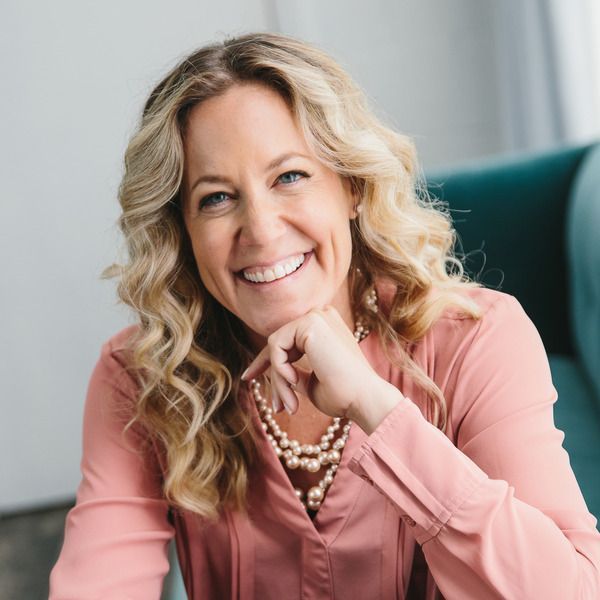Parenting Coach Certification Requirements

Parenting Coach Certification Requirements
Parent coaching is one of the fastest-growing fields in family well-being and personal development. Around the world, parents are seeking more compassionate, science-backed support in navigating the emotional complexities of raising children in today’s fast-paced world.
Becoming a certified parenting coach allows you to do meaningful work that changes lives, helping parents move from reactivity to presence, from conflict to connection, and from self-doubt to confidence.
If you’re curious about what it takes to become a parenting coach (e.g., what kind of background, training, and ongoing education is required). This guide offers a clear overview of the process and the professional standards that define the field.
At the Jai Institute for Parenting, we believe that coaching parents is one of the most direct ways to create generational change. This work isn’t about fixing families, it’s about helping adults heal and lead with empathy, emotional intelligence, and courage.
Education & Experience Prerequisites
Many people are surprised to learn that you don’t need an advanced degree, counseling license, or psychology background to become a certified parenting coach. What you do need is a passion for helping families grow in connection, a willingness to look inward, and a commitment to learning the science of human behavior and relational change.
At the Jai Institute for Parenting, our certification program is intentionally designed to welcome people from all walks of life: parents, educators, therapists, caregivers, and professionals who feel called to support families. Your personal and professional experiences form the foundation of your learning journey, and our curriculum helps you translate those strengths into effective, compassionate coaching.
Required vs. Preferred Backgrounds
Required:
- A genuine interest in personal growth, emotional intelligence, and family systems.
- A readiness to engage in self-reflection and participate in live training and coaching practice.
- Basic communication and organizational skills to work with clients and peers.
Many, but not all, of our students also have:
- Experience in related fields such as education, therapy, social work, early childhood development, or leadership.
- Prior exposure to personal development work or coaching methodologies.
- Comfort with virtual learning and peer-based discussion environments.
While some coaching programs focus on credentials or academic experience, Jai takes a holistic approach. We meet each student where they are and help them grow into their next level of leadership, personally and professionally. The goal is not to arrive with expertise, but to cultivate it through practice, presence, and reflection.
As one of our graduates shared:
“I came to Jai to learn how to coach parents. What I learned first was how to coach myself, with compassion.”
Training Modules
Parent coaching certification programs vary widely in quality and approach. The Jai Institute for Parenting’s program stands apart because it doesn’t simply teach “parenting tips.” It provides a deeply experiential education grounded in neuroscience, attachment science, and communication skills that reshape both your professional and personal life.
The training unfolds across three phases over seven months, combining live group instruction, guided practice, and personalized mentorship.
- Phase 1: Grow as a Parent – Deep personal work to understand your parenting past, attachment style, and nervous system.
- Phase 2: Grow as a Coach – Learn to coach others using evidence-based frameworks.
- Phase 3: Grow as a Leader – Build confidence in your visibility, marketing, and leadership skills so you can share this work with the world.
Let’s explore the skill areas that define each phase.
Communication & Coaching Skills
At its heart, parent coaching is a relational practice. Coaches learn to hold space for clients’ full humanity, without fixing, judging, or advising prematurely. Jai’s curriculum trains you to develop:
- Active and Reflective Listening — Learning to “enter your client’s world,” mirror understanding, and reflect their words back with empathy and clarity.
- Curiosity-Based Questioning — Replacing “why did you do that?” with powerful open-ended questions that lead to discovery and self-awareness.
- Empathy & Nonviolent Communication (NVC) — Translating judgments and criticism into underlying feelings and needs, and modeling compassionate dialogue between parents and children.
- Boundary & Values Coaching (PEACE Process) — Guiding parents to communicate expectations and limits rooted in family values rather than control or fear.
- Generational Pattern Coaching — Helping parents recognize inherited relational patterns and consciously choose new ways of relating.
- Mindset Coaching — Supporting clients to examine beliefs formed in childhood that may be shaping their parenting today, using the 5-D Coaching Process to create lasting mindset shifts.
Each of these skills is grounded in science and applied through practice calls and live demonstrations.
Child Development Fundamentals
While parent coaching centers on the adult’s growth, understanding the child’s developmental world is essential. Jai Certified Coaches study the latest neuroscience and developmental psychology to help parents see their children’s behavior through a compassionate, science-based lens.
Key areas of study include:
- Attachment Science — Exploring how early experiences shape nervous system regulation, emotional safety, and relational patterns across generations.
- Nervous System Science & Polyvagal Theory — Understanding fight, flight, and freeze responses in both parent and child, and learning how co-regulation restores connection.
- Emotional Intelligence — Naming, validating, and navigating emotions with awareness instead of reactivity.
- Mindsight & Brain Science — Building the parent’s capacity for “response over reaction” by integrating both hemispheres of the brain.
- Communication Development
— Recognizing age-appropriate expectations and supporting children to express needs effectively.
- Play and Connection Coaching — Encouraging joy, play, and nonverbal connection as the foundation for trust and resilience.
These modules equip coaches to help parents translate theory into practice. Instead of reacting to behavior, parents begin asking:
“What is my child’s nervous system telling me right now?”
Ongoing Education & Renewal
Becoming a certified parent coach is just the beginning. Because family dynamics and neuroscience are always evolving, the best coaches remain lifelong learners. Continuing education keeps your skills fresh, deepens your embodiment of the work, and supports your confidence as you serve families.
Renewal Frequency
While the Jai Institute for Parenting’s certification does not require annual testing, coaches are encouraged to renew their professional development annually through community participation and advanced training opportunities.
Many graduates join The Deepening, a year-long mentorship that refines the art of space-holding, advanced question-asking, and intuitive leadership. Others connect during our yearly Coaches Conference for community and skill-building with fellow graduates.
Recommended ongoing education areas:
- Advanced attachment and trauma-informed modalities
- Somatic and embodiment practices
- Leadership visibility and business mentorship
- Peer supervision and case consultation
- Continued personal coaching or therapy for self-integration
In the same way, parents must continually evolve to meet their children’s growth; parent coaches evolve to meet the changing needs of modern families. The renewal of skill is also the renewal of presence.
FAQs
Q: Do I need to be a parent to become a certified parenting coach?
No. While many Jai students are parents, others come from different backgrounds, like education, counseling, or wellness. What matters most is a commitment to compassion, growth, and curiosity about human relationships.
Q: How long does certification take?
Jai’s Parent Coach Certification is a
7-month program, typically requiring
5–7 hours per week. The training includes live sessions, peer practice, independent study, and applied coaching hours.
Q: How is this different from therapy?
Therapy often focuses on diagnosing or healing past trauma. Coaching is present- and future-oriented. Jai bridges both worlds, honoring the influence of the past while focusing on developing new skills and relational patterns in the present.
Q: What kinds of clients can I work with?
Certified parenting coaches work with individuals, couples, groups, schools, and organizations. Some specialize in early childhood, others in adolescence, co-parenting, or family transitions.
Q: What support will I have during training?
Each student learns within a small cohort (typically around 15 participants) led by an experienced Jai Trainer. You’ll participate in group discussions, practice sessions, and receive personalized feedback.
Q: How do I keep growing after certification?
Jai graduates have access to a vibrant alumni network spanning 65+ countries. Ongoing mentorship, advanced coursework, and community collaboration ensure you continue evolving as both coach and human being.
Making the Commitment
Parent coach certification is more than a professional credential; it’s an initiation into a new way of seeing yourself, your family, and the world. It asks you to engage your mind, body, and heart in the service of connection.
You’ll learn how to pause before reacting, how to listen before advising, and how to hold space for transformation in others because you’ve lived it in yourself.
Whether you want to coach full-time, integrate this work into an existing practice, or simply bring more peace to your home, the requirements for certification are the same: presence, practice, and a willingness to grow.
At the Jai Institute for Parenting, we say transformation begins the moment you decide to do this work, not because you already know how, but because you’re ready to grow, to listen, and to lead with compassion.
If you’re ready to meet yourself in that place of growth, connection, and possibility, the path to
becoming a certified parenting coach begins here.
Meet Your Author, Kiva Schuler
Jai Founder and CEO
Kiva’s passion for parenting stemmed from her own childhood experiences of neglect and trauma. Like many of her generation, she had a front row seat to witnessing what she did not want for her own children. And in many ways, Jai is the fulfillment of a promise that she made to herself when she was 16 years old… that when she had children of her own, she would learn to parent them with compassion, consistency and communication.
Kiva is a serial entrepreneur, and has been the marketer behind many transformational brands. Passionate about bringing authenticity and integrity to marketing and sales, she’s a sought after mentor, speaker and coach.
Share This Article:
Curious for more?














